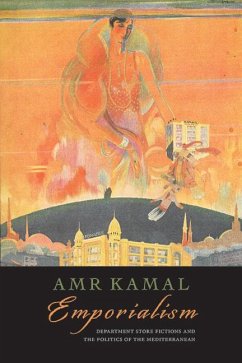This book examines what Amr Kamal calls the phenomenon of emporialism, or the convergence between the spaces and imaginaries of empires and emporia in the context of a modern Mediterranean divided among the British, French, and Ottoman empires. By "emporia," Kamal refers to the commercial network of nineteenth-century department stores, which gained prominence after the Suez Canal project. Taking as a focal point French and Egyptian department stores, the author examines emporialism as a set of phenomenological experiences, discursive and social praxes, and mechanisms of control and resistance, born from the intersection of modernity, colonialism, and mass consumption. Drawing on archival evidence, Kamal reads iconographic and literary representations of emporia in English, French, Arabic, and Hebrew, from the nineteenth century to the present, addressing works by Émile Zola, Huda Shaarawi, Jacqueline Kahanoff, and others. Emporialism, Kamal argues, served to rewrite the history of the Mediterranean, to reinvent national belonging, and to interrogate issues of modernity and social justice.
Dieser Download kann aus rechtlichen Gründen nur mit Rechnungsadresse in A, D ausgeliefert werden.









